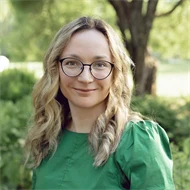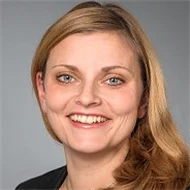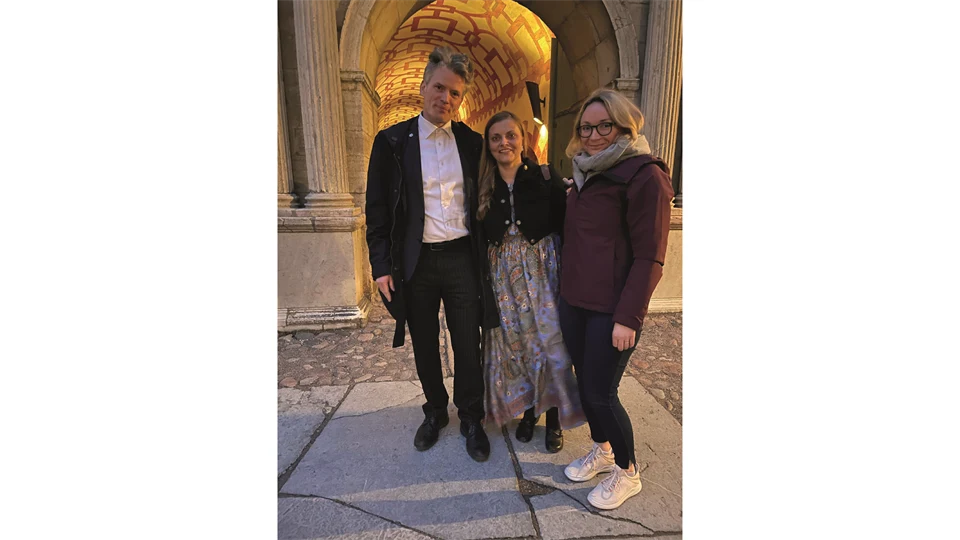Focus on legal dogmatic methods: MIUN researchers at the Nordic Conference on Legal Methods
Mikael Lundholm, Ida Asplund and Ekaterina Zmyvalova presented their ongoing research at the Nordic Conference on Legal Methods 2025 at Linnaeus University's campus in Kalmar on 14–16 May.
The discipline of law at Mid Sweden University was represented by three colleagues at the Nordic Conference on Legal Method 2025, held at Linnaeus University (Kalmar campus) on 14-16 May 2025. Mikael Lundholm, Ida Asplund, and Ekaterina Zmyvalova each presented their ongoing research and participated in thought-provoking discussions on the future of legal methodology in the Nordic region.
The conference focused on developments in legal methodology across the Nordic countries, exploring its historical evolution, current trends, and future directions. Special attention was given to how legal methods relate to context, time, space, and the interpretation of law, opening up a deeper understanding of law as a dynamic and situated practice.
Presentations and valuable insights
A central theme of the conference was the role of interdisciplinarity in legal research, addressing how legal methodology intersects with approaches from sociology, philosophy, and Indigenous studies. This resonates strongly with current research at MIUN. Ekaterina Zmyvalova presented research on Indigenous peoples’ rights that is located at the intersection of law, sociology of law, and Indigenous studies, employing a range of methods drawn from these disciplines to address complex legal questions. Ida Asplund shared her research on analysing assessments of law in public administration by interdisciplinary empirical legal methods. Mikael Lundholm contributed with his socio-legal study the social life of conflict resolution, focusing on legal and informal mechanisms for resolving disputes.
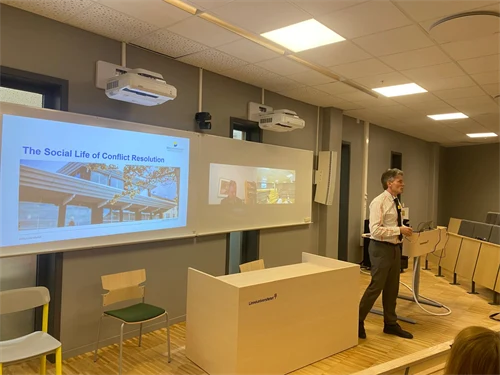
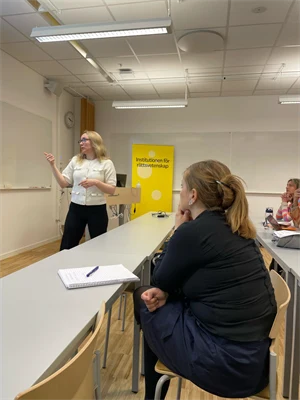
Mikael Lundholm and Ekaterina Zmyvalova present their research.
In addition to academic presentations, the conference featured keynotes that engaged in critical reflection on the meaning, boundaries, and future of legal method.
Participation in the conference was especially timely and valuable for the law discipline at MIUN. Linnaeus University, which recently launched a bachelor’s programme in law and is currently developing master's and doctoral level education, offered valuable insights. As the law discipline is currently developing its own bachelor programme, sharing experiences with colleagues engaged in similar institutional development was of great importance.
Contact
